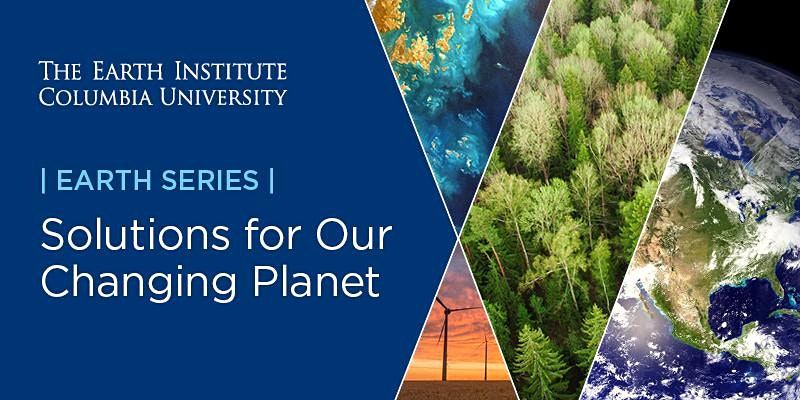Escalating coronavirus spread and sociopolitical discord have created an inflection point and a moment of deep anxiety. Join us online for this month’s Earth Lecture Series, moderated by the Earth Institute director Alex Halliday, when two of Columbia University’s most exciting thought leaders will discuss their approaches to a world fraught by public health, climate, and political leadership crises.
The Speakers:
Ruth DeFries is a University Professor; Denning Family Professor of Sustainable Development in the Department of Ecology, Evolution and Environmental Biology. She uses images from satellites and field surveys to examine how the world’s demands for food and other resources are changing land use throughout the tropics. Her research quantifies how these land use changes affect climate, biodiversity and other ecosystem services, as well as human development. She has also developed innovate education programs in sustainable development. DeFries was elected as a member of the U.S. National Academy of Sciences, one of the country’s highest scientific honors, received a MacArthur “genius” award, and is the recipient of many other honors for her scientific research. In addition to over 100 scientific papers, she is committed to communicating the nuances and complexities of sustainable development to popular audiences through her books “The Big Ratchet: How Humanity Thrives in the Face of Natural Crisis and “What Would Nature Do?: A Guide for Our Uncertain Times”.
Peter Coleman is Professor of Psychology and Education at Columbia University where he holds a joint-appointment at Teachers College and The Earth Institute. Dr. Coleman directs the Morton Deutsch International Center for Cooperation and Conflict Resolution (MD-ICCCR), is founding director of the Institute for Psychological Science and Practice (IPSP), and is executive director of Columbia University’s Advanced Consortium on Cooperation, Conflict, and Complexity (AC4). Dr. Coleman is a renowned expert on conflict resolution and sustainable peace. His current research focuses on conflict intelligence and systemic wisdom as meta-competencies for navigating conflict constructively across all levels (from families to companies to communities to nations), and includes projects on adaptive negotiation and mediation dynamics, cross-cultural adaptivity, optimality dynamics in conflict, justice and polarization, multicultural conflict, intractable conflict, and sustainable peace.
